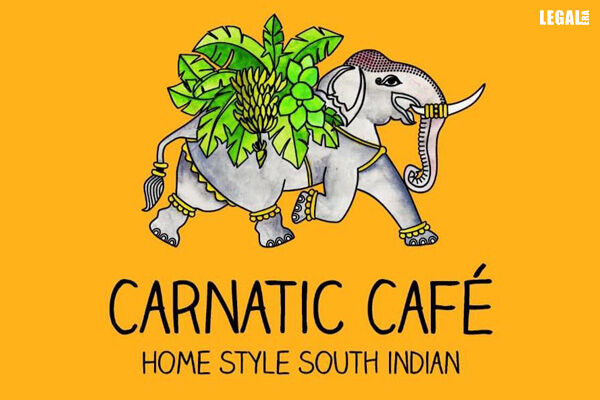
Delhi Court Permanently Blocks Bengaluru Restaurant From Using ‘Carnatic’ Mark, Upholds Trademark Rights Of Carnatic Café
Introduction
In a significant judgment protecting trademark rights in the hospitality sector, the Saket District Court, Delhi, permanently restrained Bengaluru-based Lemonpepper Hospitality Pvt. Ltd. and its directors from using the mark “CARNATIC” for their restaurant business. The court held that such use infringed upon the registered trademark “CARNATIC CAFÉ” owned by Delhi restaurateur Pavan Jambagi. The decision was delivered by District Judge (Commercial) Neelam Singh on October 29, 2025.
Factual Background
The plaintiff, operating several restaurants under the brand “Carnatic Café,” claimed prior and continuous use of the trademark, along with significant goodwill and recognition among customers. The defendants, Lemonpepper Hospitality Pvt. Ltd., launched a restaurant in Bengaluru using the name “CARNATIC,” allegedly causing confusion among customers and infringing the plaintiff’s statutory and proprietary rights. The plaintiff approached the court in April 2019, seeking permanent injunction and damages for trademark infringement and passing off.
Procedural Background
Following the suit’s institution, the court granted an ex-parte ad-interim injunction in 2019, restraining the defendants from using the disputed mark. The defendants failed to file their written statement within the statutory period, leading to the striking off of their defence on March 5, 2020. In November 2022, the defendants’ Managing Director, Sunil Kumar, filed an affidavit stating compliance with the injunction and gave an undertaking not to use the mark “CARNATIC” in the future. The court subsequently proceeded to decide the matter based on the uncontroverted pleadings and evidence placed by the plaintiff.
Issues
1. Whether the plaintiff had established valid and enforceable statutory rights over the registered trademark “CARNATIC CAFÉ.”
2. Whether the defendants’ use of the mark “CARNATIC” constituted infringement and passing off under the Trade Marks Act, 1999.
3. Whether damages and costs should be awarded to the plaintiff.
Contentions of the Parties
Plaintiff’s Contentions: The plaintiff contended that “CARNATIC CAFÉ” was a registered trademark under the Trade Marks Act, 1999, with continuous and prior use since inception. The defendants’ adoption of an identical mark “CARNATIC” was deliberate and intended to capitalize on the plaintiff’s established goodwill, amounting to infringement and passing off.
Defendants’ Position: The defendants failed to file a written statement and did not contest the proceedings. Their later affidavit merely acknowledged compliance with the court’s interim injunction, implicitly admitting the plaintiff’s claims.
Reasoning and Analysis
The court noted that the plaintiff’s trademark was registered and that its continued use had built substantial goodwill and reputation in the restaurant industry. Since the defendants neither contested the claim nor provided evidence of bona fide adoption, the court treated the plaintiff’s evidence as unchallenged. Applying Order VIII Rule 10 of the Code of Civil Procedure, 1908, the judge held that judgment could be rendered based on uncontroverted pleadings. The court found that the defendants’ use of an identical mark was likely to cause confusion and deception among consumers, thereby constituting trademark infringement under Sections 28 and 29 of the Trade Marks Act. The court further directed the defendants to transfer the domain name “www.carnaticrestaurant.com” to the plaintiff within four weeks.
Implications
The judgment reinforces the principle that registered proprietors enjoy strong protection under the Trade Marks Act, particularly when the infringing party does not contest the claim. It underscores that non-participation in proceedings and subsequent admission of infringement can lead to adverse orders, including damages and costs. Additionally, the decision highlights the judiciary’s increasing emphasis on protecting brand identity and deterring misuse of well-known marks in the hospitality sector.